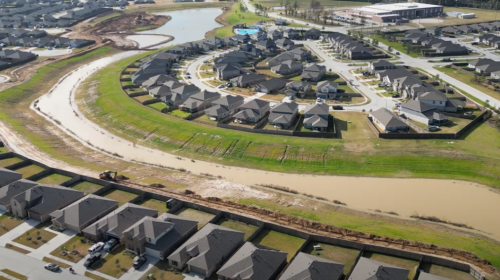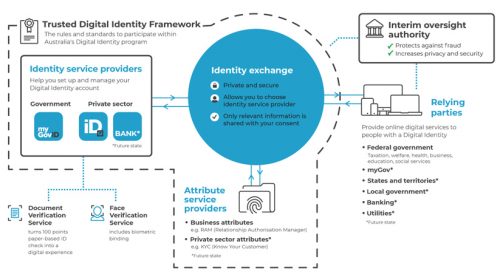
Question # 6 Reinventing Debtors Prison
Infographic : The Cycle Of Ticket Debt
Texas Targeted as a Debtors’ Prison
Various reports are emerging about how Texas is among States that are tolerating or even inducing a new form of Debtors Prison around the poor and their ability to defend themselves against the cascading effects of unpaid fines, for speeding, driving without a license and driving without insurance.
Is this a valid complaint?
What is the solution?
Candidate Answer #6 Reinventing Debtors Prison
Yes, this is a valid complaint. The Driver Responsibility Program has resulted in driver’s license suspensions for more than 1.2 million people. The program was originally designed to help fund trauma centers and hospitals during a time when there was budget shortfall. It has since exceeded the legislature’s expectations and is a cash cow for the State. Under the system, drivers who plead guilty to certain traffic offenses must pay a surcharge in order to maintain their driver’s licenses. Failure to pay the surcharge results in a driver’s license suspension. If you are caught driving with a suspended license, then your license is suspended under a different section of the transportation code, and another surcharge applies. In Montgomery County, where public transportation is basically non-existent, citizens are left with two choices – to drive with a suspended license or to not drive, which will likely result in missed work and other responsibilities. That is an untenable option for many. It is not unusual for a poverty-stricken individual to have several active license suspensions at one time, and for those suspensions to each carry hundreds (if not thousands) of dollars in surcharges. The greatest problem with the statute as written is that people incur these surcharges without sufficient notice, and driver’s licenses are suspended without sufficient notice. One way to alleviate this issue would be to require that courts inform defendants of the surcharges before entering their plea of no contest/guilty, and to inform defendants that a license suspension will result from a plea of guilty.
Question # 4 Overcriminalization
Please review video Overcriminalization in 60 Seconds
[youtube https://www.youtube.com/watch?v=hiw5j8xweQk]
Candidate Answer #4 Overcriminalization
Prison overcrowding is not a judicial problem, it is a legislative and law enforcement one. As judge, I will be sworn to protect and defend the law of this state and the United States. Judges should make decisions based upon the law, ensure that the parties are treated fairly, and when assessing punishment, for the protection of the public. Irrespective of whether our prisons are overcrowded, if incarcerating a convicted felon is necessary to protect our community,I am going to send that person to prison whether our prisons are crowded or not. At the same time, if the protection of the public is not an issue, then offenders should be punished in such a way that it is at their expense rather than taxpayer expense. Simply because prison is an option for punishment does not mean that it is appropriate in every case. Overcriminalization is also not an issue for judges to fix – that is for the legislature. At the trial level, judges are elected to follow the law as it is written, rather than legislating from the bench. How I personally feel about a statute will not affect my decisions in presiding over cases.
Question # 3 Filming the Police
Answer Question #3
The question of criminalizing this type of behavior is important for the public, the prosecution and the defense. Texas Code of Criminal Procedure Article 38.23 makes any evidence derived in violation of any law of this State inadmissible against the accused in a criminal trial. So, let us assume a highly unlikely scenario. A police officer is filmed shooting a person in cold blood at a distance of 10 feet from the shooting. Does the public want that video to be inadmissible at the officer’s trial for murder because the proposed statute was violated? I think not. Now let us assume a much more likely scenario. During a struggle between law enforcement and a suspect, the suspect assaults an officer and it is captured on film by a citizen filming 15 feet from the incident. The suspect is arrested and charged with assault on a public servant. Would the prosecution want the video excluded at the suspect’s trial because it was filmed in violation of the 25-foot zone? I would think not.
A good policy must include:
1. Protection for the Public – the public has a right to record and publish under the First Amendment. Criminalizing exercise of the First Amendment should be viewed with extraordinary skepticism by the people, particularly criminalizing exercise of the First Amendment so that it results in incarceration. Moreover, the public must be permitted to maintain any recordings they take, because the recordings are the individual’s property, and should not be seized without due process. Large judgments have been awarded against law enforcement agencies that have interfered with this right, at enormous expense to taxpayers.
2. Protection for the Police – these recordings are often of law enforcement encounters that have escalated past peacefulness, and it is critical that law enforcement officers be permitted to carry out their duties without interference or fear that a person filming the incident is only doing so under the guise of getting close enough to interfere. In order to do their jobs, police officers need to know that they have tools at their disposal to secure scenes and secure suspects, and they need to be trained to handle citizen-journalists in a manner that preserves both the citizen’s rights and officer safety.
There is already a provision in the penal code that criminalizes interfering with the duties of a public servant. Law enforcement agencies should also develop policies for obtaining copies of any videos that are recorded by citizens so that they can be maintained as evidence. There is nothing to prevent agencies from identifying witnesses who were known to be recording and obtaining an evidentiary warrant for the video recordings.
As with any law, the public should take an active interest in its development and in its implementation by participating in a dialogue with its proponents and communicating their opinion to their elected representatives via correspondence, telephone calls, or testimony before legislative committees.
Question #2 The Nature of Law
During Texas 84th legislative session State Representative Mark Keough introduced HB 3184 a bill seeking to import the civil law process of mediation into criminal law. The law applied to some first time misdemeanor and felony offenders. The bill passed though the legislative process but failed to become law on veto by Governor Greg Abbott who stated “Making amends with the victim of a crime does not absolve the criminal of his legal debt to the State.”
Do you agree with the Governor? What is the purpose of law from your point of view as a Legislative/Judicial/ Law Enforcement official? Who is it intended to protect?
What should be the role or effect of private judging companies (such as JudicialArbitration and Mediation Service) in the judicial or incarceration system?
(answer should be based on elected office sought.)
Answer Question #2
I believe that the law is designed with the goal of funneling first-time offenders into a program that would provide restitution for the complainant but diminish the effect of a conviction on the defendant’s criminal history.
It appears to permit a county to establish a specific office to supervise pretrial diversions, which are already a part of our system. Pretrial diversions are simply defined as extra-judicial contracts between the State and the defense whereby the State agrees to withhold prosecution in exchange for an apology and restitution and a period of good behavior.
In Montgomery County, defendants on pretrial diversions are supervised by the Montgomery County Department of Community Supervision and Corrections by the imposition of ancillary conditions of bond. The law appears to be designed to benefit both the complainant and the defendant, which is an admirable goal. Because it would be an automatic referral, it might also have the effect of reducing the backlog of non-violent first-time offenders out of an crowded court system, another admirable goal. But, the complainant is not a party in criminal cases. Criminal cases are brought by the State against the defendant. Accordingly, I am inclined to agree with the governor. It is the prosecutor that has the discretion to prosecute, not the complainant. It is not unusual for a complainant to desire to drop criminal charges but for the prosecutor to persist over the complainant’s objection, and for the exact reason the governor describes.
Our Texas and U.S. Constitutions provide that criminal defendants are entitled to jury trials at all levels of our criminal justice system. Requiring binding mediation or binding arbitration would be an impediment to criminal defendant’s exercising that right, and I would not support it, though HB 3184 does not appear to do that.
Question #1 Civil Asset Forfeiture.
Texas Supreme Court Justice Don Willett said “A generation ago in America, asset forfeiture was limited to wresting ill-gotten gains from violent criminals. Today, it has a distinctive ‘Alice in Wonderland’ flavor, victimizing innocent citizens who’ve done nothing wrong.”
Candidate Answer #1
As a judicial candidate, I cannot comment on how my view of civil asset forfeitures would affect my decisions in the 9th District Court. The rules of judicial ethics prohibit me from opining on how I would decide cases that are likely to come before the court. However, improper civil asset forfeiture should be prosecuted under Texas Penal Code Section 39.03, which covers official oppression.






